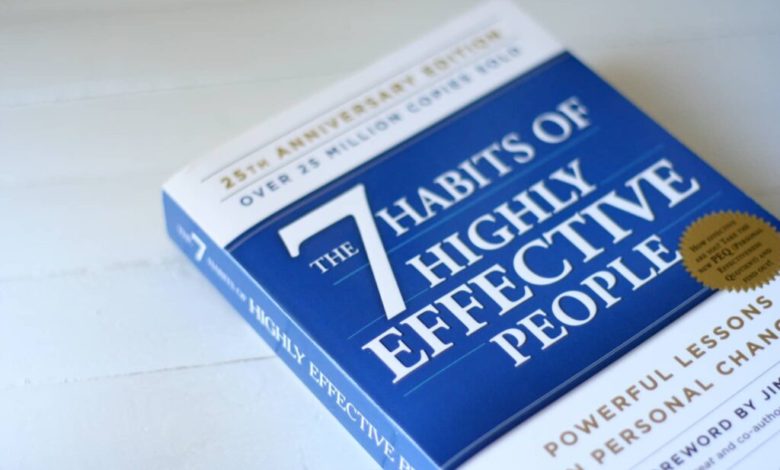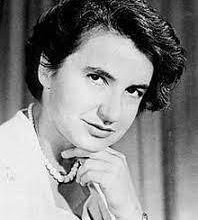
‘The 7 Habits of Highly Effective People’ written by American educator Stephen R. Covey, is indubitably one of those few astounding books that are not just meant to be kept on the shelf but instead require us to come back to time and again. First published in 1989, this mind-boggling book still holds relevance and shall continue to do so because of the fundamental truths and timeless principles that the seven habits are based on.
The book makes for an intriguing and powerful read for it harbours innumerable examples, anecdotes and author’s personal instances that are capable of keeping one hooked and oft-times, impels one to enter an altogether different zone where light eventually dawns at the end of a dim-lit tunnel. The fluid writing style, the ideas, and the choice of words makes it easy to read, comprehend and extract the very essence of all that the writer wants us to grasp.
The book, divided into four parts, encompasses not only the seven habits but is also packed with a myriad of enriching and insightful quotes and sayings, capable of rewiring our age-old assumptions and social conditioning. The listed habits are not a set of distinct or erratic formulas. Rather what we learn about one habit is intertwined with the next one, forming a solid base for understanding subsequent text.

The book takes you through a fulfilling, invigorating step-by-step journey to not only understand habits and their application, but also to delve deeper into wide array of pivotal concepts ranging from Principles, Values, Attitude, Behaviour, ‘Human endowments’ of Imagination, Conscience, Independent will, Self-awareness, Real Success to Power of Affirmation and Visualization, Personal Leadership and Management, Paradigm Shifts, Maturity Continuum, Personal Mission Statements, Emotional Bank Account, Creative Cooperation, Synergy, etc.
The writer also enlightens us on various captivating and baffling juxtapositions such as Character Ethic Vs Personality Ethic, Temporary Quick Fixes Vs Long Term Sustainable Solutions, Abundance Mentality Vs Scarcity Mentality, Inside-Out Vs Outside-In Approach, Gofer Vs Stewardship Delegation, Circle of Influence Vs Circle of Concern, Long term Vs Short term Vs Lifetime Goals, Right Brain Vs Left Brain, Independence Vs Interdependence, Win-Win Vs Win-Lose, so forth and so on.
The ‘7 Habits of Highly Effective People’ applicable in both personal and professional domains of life, ensuring individual and business progress, are as mentioned below:
Habit 1: Be Proactive
Habit 2: Begin with the End in Mind
Habit 3: Put First Things First
Habit 4: Think Win-Win
Habit 5: Seek First to Understand, Then to Be Understood
Habit 6: Synergize
Habit 7: Sharpen the Saw

The common denominator that underlines the Seven Habits is Effectiveness. These are called habits of effectiveness because they are hinged on a paradigm of effectiveness, harmonious with a principle that Stephen calls the “P/PC Balance”. This principle has a direct reference to Aesop’s infamous fable of the ‘Goose and the Golden Egg’.
Quoting Stephen, “Effectiveness lies in the balance-what I call the P/PC Balance. P stands for production of desired results, the golden eggs. PC stands for production capability, the ability or asset that produces the golden eggs.” Meaning, if we adopt a pattern of life that focuses only on golden eggs and neglects the goose, we will soon be without the asset that produces those golden eggs. On the contrary, if we only take care of the goose and forsaking the golden eggs, we shall soon perish with nothing to feed ourselves or the goose.
The homo sapiens species often tend to disrupt this balance. We seldom pay equal heed to both P and PC, because of the erroneous way in which we prioritize things in life. Stephen rightly says, “We can’t think of efficiency with people. We can only think about effectiveness with people and efficiency with things.”
Coming to Habits 1, 2, and 3, they are concerned with self-mastery, thereby known as ‘Private Victories’. Preceding ‘Public Victories’, they help advance an individual from a state of dependence to independence and shift focus from personality growth to character growth.
As one truly becomes independent, a foundation for effective interdependence gets laid, paving the way for ‘Public Victories’ with respect to teamwork, communication, and cooperation in Habits 4, 5, and 6. Habit 7 is termed as the habit of renewal-a consistent and balanced renewal in physical, spiritual, mental, social and emotional dimensions of life. It encircles all the other habits, leading to a continuous upswing of growth. It helps us reach a new echelon of understanding where various nuances of life can be understood from an unbiased and fresh vantage point.

One of the many ideas that personally stunned me was the ‘Circle of Influence’ and ‘Circle of Concern’. What we often find ourselves caught up in is incessantly worrying about the things that are outside our arena of control (termed as Circle of Concern), and paying little attention to the things that we have actual control over (termed as Circle of Influence). Changing our habits, methods, and the way we perceive our ‘no control problems’ are all inside our Circle of Influence.
So, why not focus our time and energy there and take charge of our own lives? Another personal takeaway that shall always remain ingrained in my head and heart is to be always ‘response-able’. To quote, “Between stimulus and response lies our greatest power-the freedom to choose.” Stephen teaches the readers to see the word responsibility as “response-ability”-the ability to choose our response to varied experiences in life. It is indeed our response to everyday positive and negative stimuli that either makes or breaks us.
There is no denying that while reading this riveting opus, there shall be several times when you would have revelations and moments of epiphany and that precisely is the beauty of this book. It has the power to transform every aspect of your life and is irrefutably a must-read book for folks across all walks of life, age groups, and professions.
Written by- Aakriti Sanghi
Edited by- Yashasvi Kanodia
The post The 7 Habits of Highly Effective People – A Book Review appeared first on The Economic Transcript.





